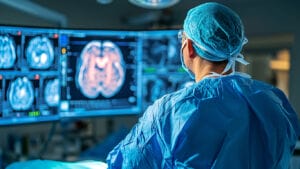Communities thrive when their healthcare systems are robust and accessible. Skilled medical professionals are critical in this, providing essential services that keep people healthy and productive.
Investing in medical training programs like Medical Billing and Coding can drive economic growth by creating skilled jobs while meeting the rising demand for healthcare services. In this article, we will explore how these investments boost local economies and enhance community well-being.
Creating Employment Opportunities
Investing in medical training programs leads to a ripple effect of job creation. Training centers themselves hire instructors, administrative staff, and support personnel. Graduates then enter the healthcare workforce, filling crucial roles in hospitals and clinics that struggle with staffing shortages.
As these professionals earn wages, they spend within their communities on housing, food, and entertainment. This spending injects vitality into local businesses. The result? New opportunities emerge not only for healthcare workers but also for those indirectly supporting them through various services and products.
Expanding Educational Options
Another compelling reason to invest in medical training is the broad range of educational opportunities it provides. Programs like medical billing and coding certification allow students to study online, offering flexibility for those balancing work or family commitments.
This accessibility attracts a diverse group of learners who might otherwise miss out on education due to geographic or time constraints. More trained individuals translate into more skilled workers entering the local economy. They enhance workforce diversity, ultimately contributing to economic resilience by meeting varied community healthcare needs efficiently.
Meeting Local Healthcare Demand
As populations grow, so does the need for healthcare services. Training local residents in medical fields ensures a steady supply of skilled professionals who can address this demand efficiently.
Hospitals and clinics prefer hiring locally trained staff familiar with community needs and cultural nuances, which leads to better patient care. This investment keeps healthcare spending within the community, fueling further growth.
Stimulating Business Growth
Training programs in healthcare fields can also spark growth in related businesses. Educational institutions, tech providers for training platforms, and local clinics all benefit from the influx of skilled graduates.
These businesses create additional jobs and services, fostering a thriving ecosystem around medical training initiatives. As more students enroll, ancillary industries such as housing and retail also experience positive impacts.
Attracting New Residents
Communities with robust medical training programs attract new residents seeking education and career opportunities. This influx boosts the local housing market, increases consumer spending, and diversifies the economy.
Newcomers also bring fresh perspectives and skills, enriching community life. These positive cycles enhance the overall quality of life and reinforce the community’s economic resilience.
Supporting Technological Advancement
Medical training programs often incorporate cutting-edge technologies, fostering a tech-savvy workforce. As trainees become proficient in new healthcare technologies, they drive innovation and efficiency in local medical practices.
These advancements attract tech companies and startups to the area, creating a dynamic hub for medical technology development. Such growth generates high-paying jobs and solidifies the community’s economic foundation.
Enhancing Public Health
Public health is vital for a thriving economy. Training local medical professionals ensures communities have the resources to effectively manage and prevent health crises.
Well-trained healthcare workers improve overall public health, reducing absenteeism in schools and workplaces. Healthy populations are more productive, fostering stability and growth while decreasing long-term healthcare costs through preventative care measures.
Conclusion
Investing in medical training programs goes beyond just education. It enriches communities by creating skilled jobs, increasing local spending, and ensuring access to quality healthcare.
With innovative educational paths like online study for medical billing and coding certification, these programs are more accessible than ever. As a result, they help build resilient economies capable of adapting to future challenges.




